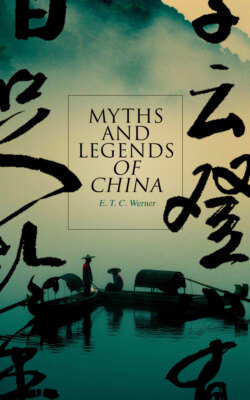Читать книгу Myths and Legends of China - E. T. C. Werner - Страница 55
На сайте Литреса книга снята с продажи.
The T'ang and Sung Epochs
ОглавлениеReligious romance began at this time. The T'ang epoch (A.B. 618–907) was one of the resurrection of the arts of peace after a long period of dissension. A purer and more enduring form of intellect was gradually overcoming the grosser but less solid superstition. Nevertheless the intellectual movement which now manifested itself was not strong enough to prevail against the powers of mythological darkness. It was reserved for the scholars of the Sung Period (A.D. 960–1280) to carry through to victory a strong and sustained offensive against the spiritualistic obsessions which had weighed upon the Chinese mind more or less persistently from the Han Period (206 B.C.-A.D. 221) onward. The dogma of materialism was specially cultivated at this time. The struggle of sober reason against superstition or imaginative invention was largely a struggle of Confucianism against Taoism. Though many centuries had elapsed since the great Master walked the earth, the anti-myth movement of the T'ang and Sung Periods was in reality the long arm and heavy fist of Confucius emphasizing a truer rationalism than that of his opponents and denouncing the danger of leaving the firm earth to soar into the unknown hazy regions of fantasy. It was Sung scholarship that gave the death-blow to Chinese mythology.
It is unnecessary to labour the point further, because after the Sung epoch we do not meet with any period of new mythological creation, and its absence can be ascribed to no other cause than its defeat at the hands of the Sung philosophers. After their time the tender plant was always in danger of being stunted or killed by the withering blast of philosophical criticism. Anything in the nature of myth ascribable to post-Sung times can at best be regarded only as a late blossom born when summer days are past.
